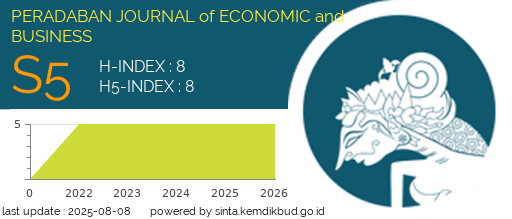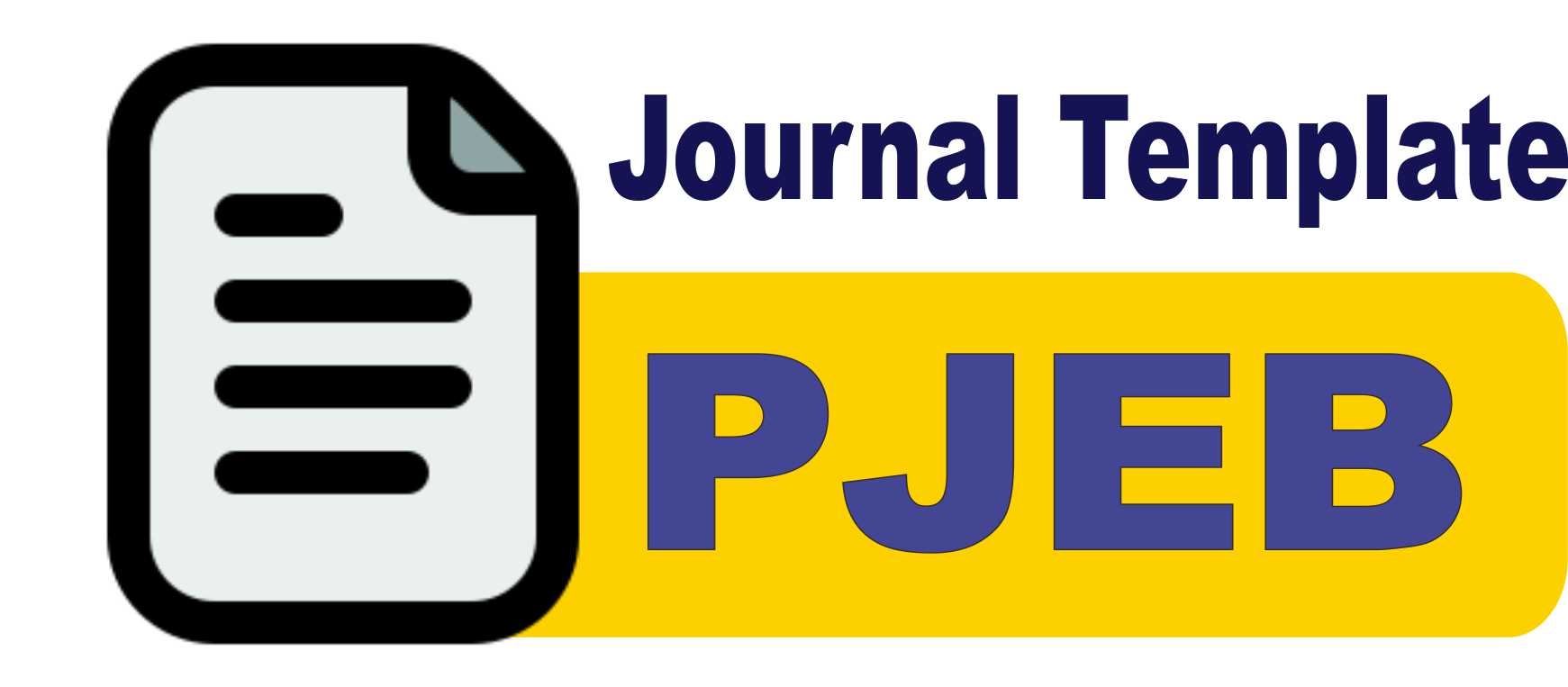Exploring Amartya Sen's Capability Approach
Insights from Climate Change Adaptation in Indonesia
DOI:
https://doi.org/10.59001/pjeb.v2i2.109Keywords:
Amartya Sen, Capability Approach, Climate ChangeAbstract
The article delves into the Capability Approach, exploring its concepts and applications, illustrated through its adaptation to climate change challenges in Indonesia. The objective is to enhance understanding and illustrate its effectiveness in addressing climate change impacts. Proposed by Amartya Sen, the Capability Approach provides a holistic view of societal well-being by empowering individuals or groups to achieve life goals. It encompasses various abilities for decent living, including education, health, and freedom. Emphasizing capability enhancement, it transcends economic measures to consider essential aspects shaping human life. Insights into climate change adaptation reveal the Capability Approach's ability to identify the most vulnerable social groups. The article suggests solutions: enhancing capabilities in vulnerable groups and promoting sustainable economic development. By understanding and improving capabilities, along with fostering sustainable economic development, the Capability Approach offers a pathway to address climate change impacts and achieve long-term resilience.
References
Asnawi, R. (2015). PERUBAHAN IKLIM DAN KEDAULATAN PANGAN DI INDONESIA. TINJAUAN PRODUKSI DAN KEMISKINAN. Sosio Informa : Kajian Permasalahan Sosial dan Usaha Kesejahteraan Sosial, 1(3). https://doi.org/10.33007/inf.v1i3.169
Cappelli, F. (2023). Investigating the origins of differentiated vulnerabilities to climate change through the lenses of the Capability Approach. Economia Politica, 40(3), 1051–1074. https://doi.org/10.1007/s40888-023-00300-3
Comim, F., Qizilbash, M., & Alkire, S. (2008). The Capability Approach: Concepts, Measures and Applications (1st ed.).
Conlin, J. (2020). Great Economic Thinkers: An Introduction-from Adam Smith to Amartya Sen. London: Reaktion Books.
Cornia, G. A., & Stewart, F. (2014). Towards Human Development: New Approaches to Macroeconomics and Inequality (1st ed.). Oxford: Oxford University Press.
Crocker, D. A., & Robeyns, I. (2009). Capability and Agency. In C. W. Morris (Ed.), Amartya Sen (Contemporary Philosophy in Focus) (1st ed.). Cambridge: Cambridge University Press.
Dalziel, P., Saunders, C., & Saunders, J. (2018). Wellbeing Economics: The Capabilities Approach to Prosperity (1st ed.). Cham, Switzerland: Springer International Publishing;Palgrave Macmillan.
Fukuda-Parr, S. (2003). The Human Development Paradigm: Operationalizing Sen’s Ideas on Capabilities. Feminist Economics, 9(2–3), 301–317. https://doi.org/10.1080/1354570022000077980
Gotoh, R., & Dumouchel, P. (2009). Against Injustice: The New Economics of Amartya Sen (1st ed.). Cambridge: Cambridge University Press.
Grehenson, G. (2010, April 20). Petani Paling Dirugikan dalam Perubahan Iklim Global. Retrieved 2 October 2023, from Https://ugm.ac.id/ website: https://ugm.ac.id/id/berita/2243-petani-paling-dirugikan-dalam-perubahan-iklim-global/
Hahnel, R. (2002). AMARTYA SEN: The Late Twentieth Century’s Greatest Political Economist? In D. Dowd (Ed.), Understanding Capitalism: Critical Analysis From Karl Marx to Amartya Sen. London ; Sterling, Va: Pluto Press.
Kuklys, W. (2005). Amartya Sen’s Capability Approach: Theoretical Insights and Empirical Applications (Studies in Choice and Welfare) (1st ed.). Berlin: Springer.
McGillivray, M., & Clarke, M. (Eds.). (2007). Understanding Human Well-Being. Tokyo ; New York: United Nations University Press.
Morris, C. W. (Ed.). (2009). Amartya Sen (Contemporary Philosophy in Focus) (1st ed.). Cambridge: Cambridge University Press.
Nussbaum, M., & Sen, A. (1993). The Quality of Life. Oxford: Oxford University Press, USA. Retrieved from http://gen.lib.rus.ec/book/index.php?md5=7da6074f87dc25f820a25cb0a0cb87cd
Roy, M., & Venema, H. D. (2002). Reducing risk and vulnerability to climate change in India: The capabilities approach. Gender & Development, 10(2), 78–83. https://doi.org/10.1080/13552070215904
Sen, A. (1983). Development: Which Way Now? The Economic Journal, 93(372), 745–762. https://doi.org/10.2307/2232744
Sen, A. (1991). On Ethics and Economics. Hoboken, New Jersey: Wiley-Blackwell. Retrieved from http://gen.lib.rus.ec/book/index.php?md5=d9bd333bad7cc313a0f284348efbd8f3
Sen, A. K. (2000). Development as Freedom (1st ed.). New York: Alfred A. Knopf, Inc.
Waage, J., Banerji, R., Campbell, O., Chirwa, E., Collender, G., Dieltiens, V., … Unterhalter, E. (2010). The Millennium Development Goals: A cross-sectoral analysis and principles for goal setting after 2015: Lancet and London International Development Centre Commission. The Lancet, 376(9745), 991–1023. https://doi.org/10.1016/S0140-6736(10)61196-8
Walker, M., & Unterhalter, E. (2007). Amartya Sen’s Capability Approach and Social Justice in Education (First Edition).





